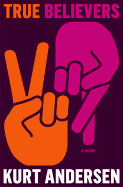 Those who came to celebrate the life of Kathi Kamen Goldmark yesterday at the Congregation Sherith Israel in San Francisco were encouraged to don leopard print, sequins and/or vamp attire--all favorites of the author, radio producer, singer/songwriter and all-around connector whose death took her from this literary scene last month.
Those who came to celebrate the life of Kathi Kamen Goldmark yesterday at the Congregation Sherith Israel in San Francisco were encouraged to don leopard print, sequins and/or vamp attire--all favorites of the author, radio producer, singer/songwriter and all-around connector whose death took her from this literary scene last month.
If Rabbi Larry Raphael was taken aback by the most dense sea of leopard print the 107-year-old synagogue had ever seen, he didn't show it as he welcomed attendees to the resplendent "community-built" facility that housed both the Hall of Justice and the Superior Court after the 1906 earthquake.
Ben Fong Torres, rock journalist, author and radio personality, who fell in love with Kathi in the 1970s when they met, served as master of ceremonies. With a respectful nod to cliché, he said, "She is still here."
Laura Barry, Kathi's beloved stepdaughter, spoke first: "I can say with confidence that every one in this room shares a unique and beautiful relationship with her.... Not only did she make wonderful things happen, but she encouraged others to do the same. Once you were in her life you could count on being in her heart as well."
When Kathi's only child, Tony Goldmark, took the podium he echoed Laura's statement about how children born to special parents (or married into the relationship) might not realize how unusual their perspective is on happiness. After 29 years of life, Tony said, he was just now realizing how "abnormally wonderful my mother was in how she loved me and everyone she knew." As a son, he said he won the lottery to have landed a mother who was too busy laughing at his pranks to punish him and too quick to support his creative efforts to criticize him.
After a musical interlude, Kathi's mother, Betty Kamen, shared two stories. In one Betty gave permission to a young Kathi to change a hated dress before a guest arrived, only to be told by her daughter that Aunt Rose (the imminent guest) had given Kathi that dress; the other involved second grade girls gossiping about a classmate during a sleepover. Eavesdropping--as mothers will do--Betty said she heard Kathi tell the other girls: "You have to understand Amy. Her mother is never home."
At this point, there were very few dry eyes in the synagogue.
 Lightening the mood, brother-in-law Dave Barry said, "I was going to tell the dress story; thanks, Betty." But even though he could joke about meeting Kathi through music--well, not music, exactly, but the Rock Bottom Remainders--Dave had a hard time keeping totally composed as he talked about a woman who just knew where to buy flamingo hats and kazoos in bulk. "To share the stage with Kathi was to share her joy, and what a wonder that was," he said.
Lightening the mood, brother-in-law Dave Barry said, "I was going to tell the dress story; thanks, Betty." But even though he could joke about meeting Kathi through music--well, not music, exactly, but the Rock Bottom Remainders--Dave had a hard time keeping totally composed as he talked about a woman who just knew where to buy flamingo hats and kazoos in bulk. "To share the stage with Kathi was to share her joy, and what a wonder that was," he said.
Still, the last full sentence Kathi said to Dave was about the upcoming 20th anniversary Remainders shows set for the Los Angeles area last weekend. "I have big problems with the set list," she joked. After raising millions for charity, the Rock Bottom Remainders hung up their guitars and sequins.
"Kathi made us do it," began Amy Tan, who was the last official speaker at the memorial for a person she described as having the uncanny knack for getting people to do things that were unnatural for them. This, from a once-timid writer who could not sing, who--at Kathi's prodding--made a pretty good faux-dominatrix smacking Stephen King on the behind as a Remainderette. (Co-Remainderette Scott Turow was also in attendance.)
 "None of us had the energy to keep up with all of her ideas," Tan said. "Not until Sam came along." Bandmates Sam Barry and Kathi married in 2009. Tan went on to call all those in attendance Kathi's co-conspirators. "So if we laughed or cried, Kathi made us do it."
"None of us had the energy to keep up with all of her ideas," Tan said. "Not until Sam came along." Bandmates Sam Barry and Kathi married in 2009. Tan went on to call all those in attendance Kathi's co-conspirators. "So if we laughed or cried, Kathi made us do it."
Attendees then adjourned to another room where the party Kathi wanted began. Her band, Los Train Wreck, was joined onstage by Roger McGuinn of the Byrds--and just about anyone else who wanted to sing or say a few words.
All day people commented how Kathi shared her gifts with anyone who knew her. That afternoon, Sam Barry stepped up to play harmonica, sing and share the gift of his wife's joy with all.
"Joy and sadness don't sit well together," observed Brenda Knight, associate publisher at Cleis Press & Viva Editions, one of the hundreds of publishing people who attended the memorial.
Yesterday in a synagogue an earthquake couldn't crumble, joy and sadness might not have sat well together, but they rocked. Kathi made them do it. --Bridget Kinsella
 The Kobo Touch e-reader will be released in Japan next month, according to Hiroshi Mikitani, CEO and chairman of Rakuten, which purchased Kobo from Indigo for $315 million earlier this year. The device will retail for approximately ¥10,000 (about US$125.50). "Timing is key, of course," Engadget reported, noting that "murmurs of the Kindle Touch's Japanese debut haven't escaped Mikitani's notice."
The Kobo Touch e-reader will be released in Japan next month, according to Hiroshi Mikitani, CEO and chairman of Rakuten, which purchased Kobo from Indigo for $315 million earlier this year. The device will retail for approximately ¥10,000 (about US$125.50). "Timing is key, of course," Engadget reported, noting that "murmurs of the Kindle Touch's Japanese debut haven't escaped Mikitani's notice." 





 In a remarkable move emphasizing the depth of their concern, nine midsized publishers--and by virtue of some of their distribution operations, more than 1,000 distributed publishers--sent a joint 19-page comment to the Justice Department against its proposed settlement with Hachette Group, HarperCollins and Simon & Schuster in the e-book agency plan pricing case. (The comment period ended last night at midnight.)
In a remarkable move emphasizing the depth of their concern, nine midsized publishers--and by virtue of some of their distribution operations, more than 1,000 distributed publishers--sent a joint 19-page comment to the Justice Department against its proposed settlement with Hachette Group, HarperCollins and Simon & Schuster in the e-book agency plan pricing case. (The comment period ended last night at midnight.)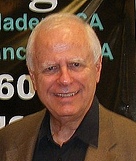 One of the many letters sent to the Justice Department during the comment period was from Bill Petrocelli, co-owner of the Book Passage, Corte Madera and San Francisco, Calif., who wrote a characteristically eloquent missive drawing on years of relevant book world history. Besides being a bookseller, Petrocelli is a lawyer who was involved to differing degrees in some of the major bookstore litigation of the 1990s, including the Northern California Booksellers Association and American Booksellers Association efforts against publishers and Borders and Barnes & Noble. (
One of the many letters sent to the Justice Department during the comment period was from Bill Petrocelli, co-owner of the Book Passage, Corte Madera and San Francisco, Calif., who wrote a characteristically eloquent missive drawing on years of relevant book world history. Besides being a bookseller, Petrocelli is a lawyer who was involved to differing degrees in some of the major bookstore litigation of the 1990s, including the Northern California Booksellers Association and American Booksellers Association efforts against publishers and Borders and Barnes & Noble. (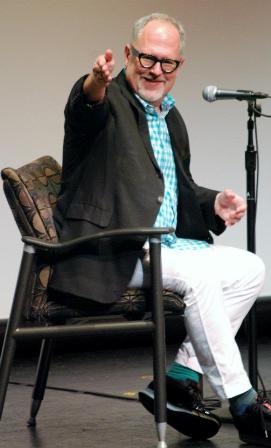 Last Friday, Octavia Books, New Orleans, La., hosted an event for the release of The Fantastic Flying Books of Mr. Morris Lessmore by William Joyce (Atheneum Books for Young Readers) that drew more than 200 enthusiastic fans.
Last Friday, Octavia Books, New Orleans, La., hosted an event for the release of The Fantastic Flying Books of Mr. Morris Lessmore by William Joyce (Atheneum Books for Young Readers) that drew more than 200 enthusiastic fans. 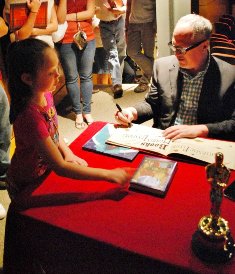 The author, whose book inspired the wonderful Oscar-winning short film of the same name, was interviewed by Susan Larson of WWNO's Reading Life. Here: Joyce on stage and signing books (with his Oscar to the right).
The author, whose book inspired the wonderful Oscar-winning short film of the same name, was interviewed by Susan Larson of WWNO's Reading Life. Here: Joyce on stage and signing books (with his Oscar to the right). Those who came to celebrate the life of
Those who came to celebrate the life of  Lightening the mood, brother-in-law Dave Barry said, "I was going to tell the dress story; thanks, Betty." But even though he could joke about meeting Kathi through music--well, not music, exactly, but the Rock Bottom Remainders--Dave had a hard time keeping totally composed as he talked about a woman who just knew where to buy flamingo hats and kazoos in bulk. "To share the stage with Kathi was to share her joy, and what a wonder that was," he said.
Lightening the mood, brother-in-law Dave Barry said, "I was going to tell the dress story; thanks, Betty." But even though he could joke about meeting Kathi through music--well, not music, exactly, but the Rock Bottom Remainders--Dave had a hard time keeping totally composed as he talked about a woman who just knew where to buy flamingo hats and kazoos in bulk. "To share the stage with Kathi was to share her joy, and what a wonder that was," he said. "None of us had the energy to keep up with all of her ideas," Tan said. "Not until Sam came along." Bandmates Sam Barry and Kathi married in 2009. Tan went on to call all those in attendance Kathi's co-conspirators. "So if we laughed or cried, Kathi made us do it."
"None of us had the energy to keep up with all of her ideas," Tan said. "Not until Sam came along." Bandmates Sam Barry and Kathi married in 2009. Tan went on to call all those in attendance Kathi's co-conspirators. "So if we laughed or cried, Kathi made us do it."
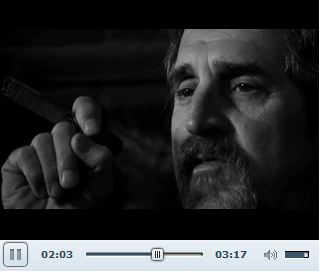

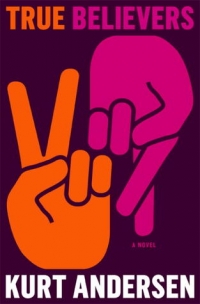 Karen Hollander, the narrator of Kurt Andersen's rambunctious True Believers, carries all the passionate and ambiguous baggage the 1960s laid on the boomer generation. As the novel opens, Karen turns down a potential Supreme Court nomination, knowing the political vetting process will expose an incriminating secret she has been carrying since her radical student days in '68. Instead, she begins a memoir where she can tell the true story of those years herself. To finish it, she needs to corroborate her memory with evidence from both the surviving participants and the government agencies charged with investigating them. Jumping back and forth in time, the novel gradually uncovers what really happened when she was 18 and hellbent on saving the world.
Karen Hollander, the narrator of Kurt Andersen's rambunctious True Believers, carries all the passionate and ambiguous baggage the 1960s laid on the boomer generation. As the novel opens, Karen turns down a potential Supreme Court nomination, knowing the political vetting process will expose an incriminating secret she has been carrying since her radical student days in '68. Instead, she begins a memoir where she can tell the true story of those years herself. To finish it, she needs to corroborate her memory with evidence from both the surviving participants and the government agencies charged with investigating them. Jumping back and forth in time, the novel gradually uncovers what really happened when she was 18 and hellbent on saving the world.